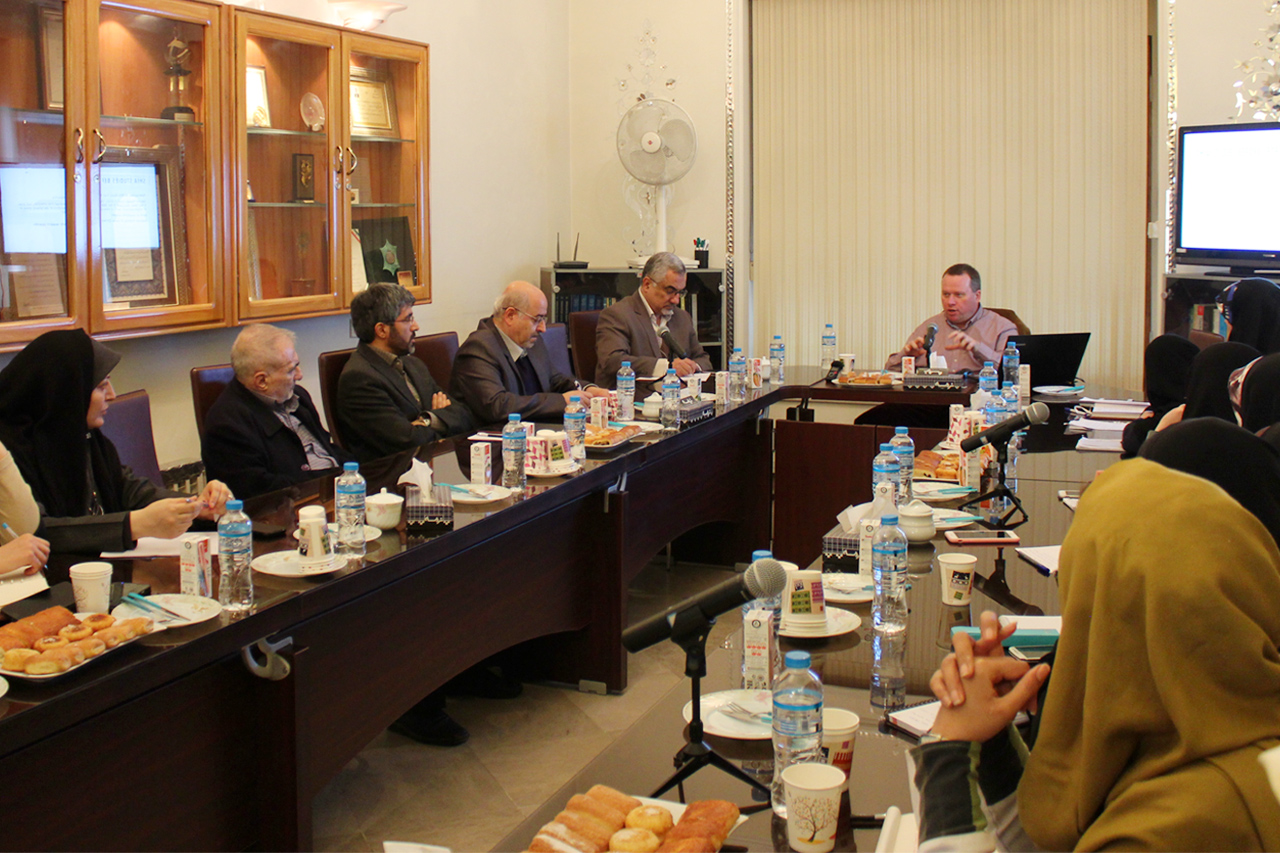Lecture Report in the Islamic Research and Information Center (IRIC) – Tehran

IRIC was proud to host a meeting with Dr. Oliver Scharbrodt on the topic entitled “Shia studies in UK, current situation and future prospects “on 27th February 2018. The meeting started with the introduction of Dr. Oliver Scharbrodt, Professor of Islamic Studies of the University of Birmingham, by Dr. Safavi, the Director of the IRIC.
Dr. Scharbrodt delivered his presentation and gave an overview of researches which is done and the institutions involved in the study of Shia Islam in UK. According to him, before the Islamic Revolution in Iran in 1979, Shia Islam wasn't a very significant topic of researches. Since Sunni Islam was the default understanding of Islam so Shi’ism was relegated to the periphery and also was presented as heterodoxy. The only institution that engaged in serious research in Shia Islam was the Institute of Ismaili studies. However in the last 40 years, it has already changed significantly. The Islamic Revolution of 1979 was a major watershed event in many ways and brought more attention to Islamic studies with suddenly an exploding interest in Twelver Shia Islam in particular.
Dr. Scharbrodt proceeds his lecture introducing: academic centers which do research on Shia studies at British universities such as Exeter, Edinburgh, Durham, …؛ tertiary Shia educational institutions in Britain such as Islamic College of London, International College of Islamic Sciences and al-Mahdi Institute؛ academic outreach initiatives such as: Center for Academic Shia Studies and Center for Islamic Shia Studies.
At the end, the assessment of current situation of Shia studies was made by Dr. Scharbrodt. He believed that “there is a kind of an institutional gap between university- based academic scholarship and research on Shia Islam. The well-established Shia organizations sometimes don't see the necessity of engaging with academic term. They give self-certifying degrees to the students which is not officially recognized except some UK universities have admitted their students to their postgraduate programs. So this is a very strong desire to get academic recognition for the program. Of course some centers affiliated to major Shia organizations have tried to bridge the gap. There is a need also to have a kind of university-based research center.”
Following Dr. Scharbrodt lecture, Dr. Mousavi, one of the researchers in IRIC, introduced IRIC project entitled “Shia studies in western academia” and elaborated the aims, scope and outcome of the research and then she and Dr. Fatemeh Taromi, the lecturer of IRIC, gave a brief report on the project. They introduced some academic institutions and scholars some of which was in common with Dr. Scharbrodt speech.
The meeting was held in a friendly atmosphere so that the participants had the chance to raise their questions, all of which was warmly welcomed by Dr. Oliver Scharbrodt.
Source:IRIC

